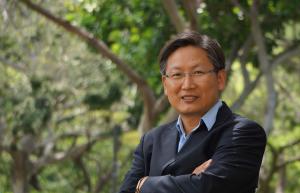Law professor joins U.N. group to combat ‘The Disappeared’
University of Hawaiʻi at MānoaAn associate professor at the William S. Richardson School of Law has been appointed to a United Nations Human Rights Council mandate-holder position aimed at combating politically motivated disappearances on a global scale.
Associate Professor Tae-Ung Baik will join four other members of the “Working Group on Enforced or Involuntary Disappearances” (WGEID) at his first meeting in Geneva, Switzerland, in mid-September. He was appointed to a three-year term beginning July 3.
Each of the members is selected to represent one of the five regions of the world; Associate Professor Baik will represent Asia-Pacific.
His personal history as a political prisoner under a repressive former regime in his home country of South Korea makes his appointment particularly compelling. In a powerful letter of recommendation, Dean Avi Soifer wrote, “Tae-Ung Baik has had to bear directly and at length what few of us would be able to bear at all. Nonetheless, he has emerged as a strikingly careful, wise, and effective human rights advocate.”
Joachim Rucker, president of the Human Rights Council under which the Working Group operates, welcomed Associate Professor Baik’s strong victim-centered approach that draws on both his academic expertise and his own experience.
Formed 35 years ago, the group’s main task is to help families determine the fate or whereabouts of family members who have disappeared. It plays a key role as a liaison between families, agencies assisting them, and the governments involved by submitting evidence and asking for investigations. Only when the fate of a disappeared person is known is a case closed.
In formal terms, as a “mandate-holder” of the Human Rights Council, Associate Professor Baik will work as an independent expert to report and advise the council on human rights issues.
For more information, visit: https://www.law.hawaii.edu/

